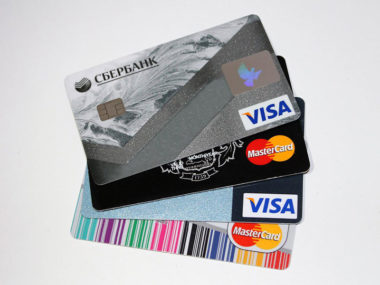A short-term loan is an unsecured loan that almost anyone with an income can obtain. Specifically, short-term loans are personal loans that are paid back within one year.
Often, short-term loans are for a small dollar amount and are unsecured, meaning you don’t have to provide collateral to get one. You can obtain a short-term loan online or directly from your financial institution. Some stores may also offer short-term loans.
A credit check is required, and you may need to provide pay stubs or other documents that highlight your financial history. On average, the interest rate of a short-term loan is 400%, but it does vary by state. If you are approved, you’ll receive a loan offer with an interest rate and term based on your credit history. Typically short-term loans are approved within 24 hours.
If you need money quickly, a short-term personal loan could be the answer. Learn more about the drawbacks of short-term loans and how you can obtain one.
Table of Contents
Short-Term Loan vs. Long-Term Loan
Aside from the obvious difference in term lengths, short-term loans and long-term loans have different purposes. Short-term loans are for short-term goals, like replacing home appliances or paying for car repairs.
Conversely, long-term loans are for bigger transactions, like buying a home. Sometimes, a loan can fall somewhere between the short-term and long-term. Car loans are a great example, as it depends on the amount you need to purchase the car.
Typically the higher the amount of the loan, the longer the term is to pay it back. In other words, if you need a large sum of money, you’re probably requesting a long-term loan.
Another difference between short-term and long-term loans is that short-term loans are often easier to get approved for. Often, the credit checks aren’t as stringent for short-term loans. Unlike the long-term loan approval process, which can take weeks, short-term loans can often be obtained on the spot.
When it comes to interest rates, short-term loans are known for their high, less flexible interest. Because the repayment period is shorter, the lender has to protect themselves in the event that the borrower neglects to make payments.
Examples of Short-Term Loans
There are varying kinds of short-term loans and each has its own purpose. Below, we dissect the different types of short-term loans available to you.
Lines of Credit (LOC)
A line of credit is an arrangement where a lender and borrower arrange a maximum amount that the borrower can use. This kind of short-term loan is often easy to access, as many retailers want consumers to have lines of credit specific to their organization.
The borrower can make monthly payments towards the amount they borrowed for goods and services. Monthly payments vary depending on how much the line of credit is. This short-term loan typically has lower annual percentage rates (APRs), making it easier to carry a balance.
Payday Loans
Payday loans are unsecured, high-interest loans that are also called cash advance loans or check advance loans. They’re often used in emergencies, as the approval is fairly quick and you have access to the funds the same day.
The drawback of payday loans is that they must be paid back in a lump sum, including the loan amount plus interest, which averages 391%. The loan is due when your next payday rolls around. When it’s time to repay, the lender takes what is owed directly from your bank account.
Merchant Cash Advances (MCAs)
Although some argue it is a cash advance and not a loan, MCAs work with a financing company that advances merchant borrowers cash in exchange for a percentage of daily credit and debit sales.
Merchant cash advance repayments can be structured in two ways: the merchant receives an upfront sum in exchange for a percentage of future sales, or the lender withdraws fixed debit amounts from the merchant’s bank account. Note that fees are attached to these payments until the advance is paid in full.
If you take out an MCA, your interest rate is determined based on your ability to repay, which in turn is based on a factor rate. A factor rate includes variables such as the amount you’re borrowing, the loan terms, your time in business, and your business’s average monthly sales and revenue. The cash advance you need is multiplied by your factor rate to determine the amount you’ll owe the lender. A more traditionally structured loan could be more affordable than a merchant cash advance, depending on your factor rate.
Installment Loans
Installment loans are loans with a specific dollar amount from the lender that you agree to pay back in monthly payments plus interest.
Unlike a credit card, which establishes your line of credit, you decide how much you need. Typically, interest rates are fixed, which makes predicting payments easy. However, the interest rate you are charged is based on your credit history, so it could potentially be high.
The drawbacks to installment loans are that you can’t add to the amount you borrowed. Therefore, it’s important to calculate the amount you need carefully before applying for such a loan.
Invoice Financing
Invoice financing helps businesses borrow money against the outstanding amounts that clients owe businesses. This type of financing can help pay for the cost of running a business. A percentage of a business’s invoice is paid to the lender as a fee for borrowing funds. Invoice financing is a short-term way of offsetting the problem of clients who take a long time to pay off their debts.
Unlike a secured line of credit extension, invoices serve as the collateral for invoice financing. The lender is protected by only using a portion of the invoice as security, but the client may neglect to pay the invoice, which creates problems for the lending business.
Pros and Cons of Short-Term Loans
Just like any type of a decision, there are pros and cons to short-term loans. Consider the following before you take out a short-term loan:
Pros of Short-Term Loans
Some advantages of short-term loans are smaller terms, quick funding, and they’re easily acquired.
- Short-term loans give you access to funding fast. You can usually have the money you need in as little as a day. This is helpful when you need emergency funding for unexpected situations.
- It’s easy to get approved for a short-term loan. In some cases, no credit check is required. This means you don’t have to tie up your assets as collateral. Often, even people with bad credit are approved for short-term loans.
- Commitment is minimal on your part. Short-term loans don’t last a lifetime, which means you can access the money you need, pay it back, and move on with your life.
- They come with flexible repayment options. In most cases, you can make weekly or bi-weekly payments on your short-term loans. You may also be able to make advance payments, depending on the lender.
Cons of Short-Term Loans
Some disadvantages of short-term loans are the smaller loan amounts, higher interest rates, and the propensity for most predatory lenders to target short-term loans.
- High interest rates can be a burden. This may mean higher payments and ultimately a higher total cost on the loan.
- The fees can be tremendous. If you miss a payment on your short-term loan, late fees can cause your balance to skyrocket
- These loans aren’t helpful in building credit. If you’re looking to establish or remedy your credit, a short-term loan may not help. Not every lender files a report with the bureau, and therefore there is no impact on your personal credit.
- Short-term loans are not a long-term solution. These types of loans are typically for emergency situations, so it’s not wise to use them for long-term financial difficulties.
Short-term loans can be beneficial in a pinch. Consider your situation before you decide on the short-term loan that’s right for you.
Image Source: https://depositphotos.com/





